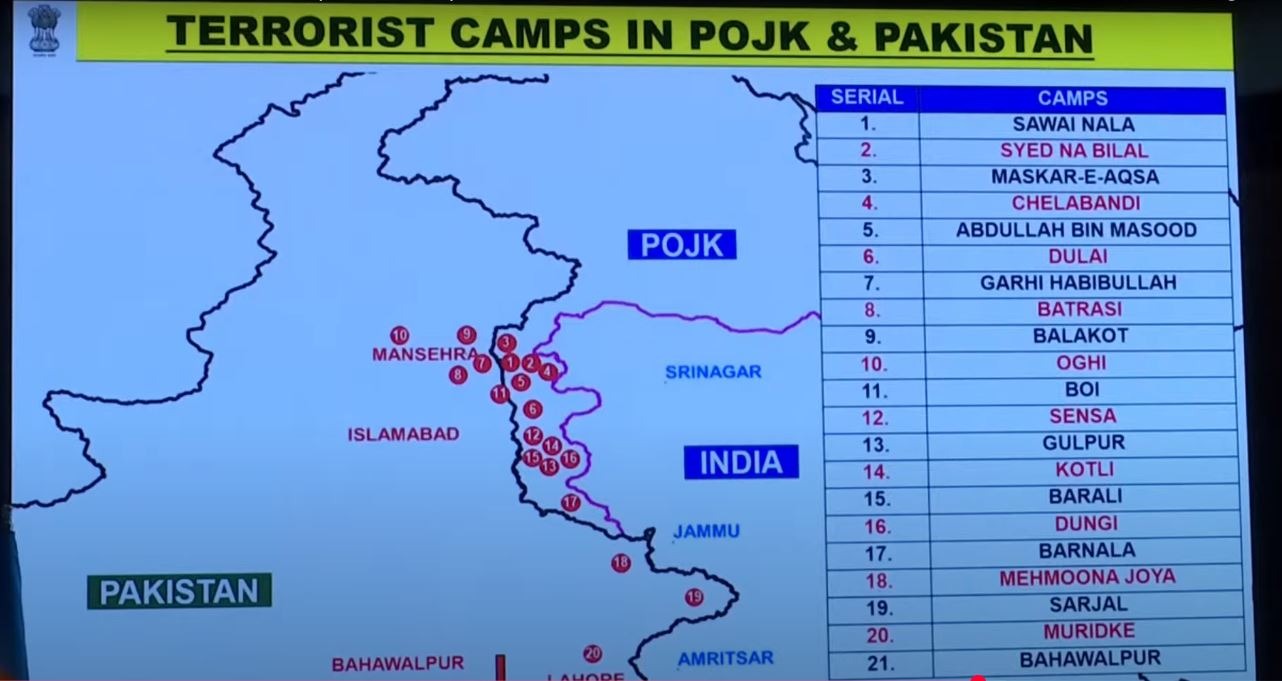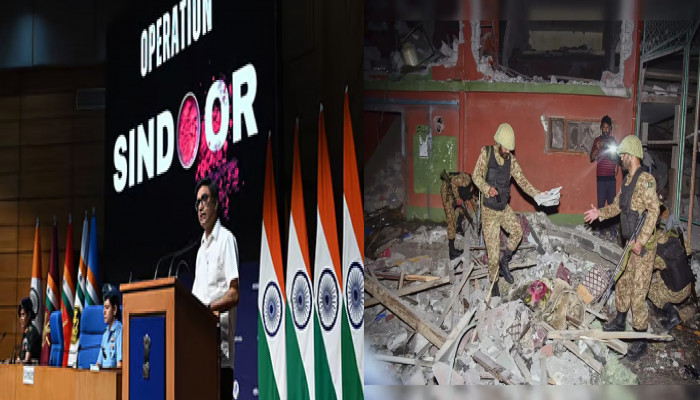Indian Army holds media briefing on Operation Sindoor
- In Reports
- 01:51 PM, May 07, 2025
- Myind Staff
Early Wednesday morning, the Indian armed forces carried out 24 precise missile strikes on nine terrorist targets across Pakistan and Pakistan-Occupied Kashmir (POK). These strikes hit key terror strongholds, including Muridke and Bahawalpur, where groups like Lashkar-e-Taiba and Jaish-e-Mohammed operate. The attack resulted in the deaths of over 70 terrorists and left more than 60 injured, severely damaging the operational capabilities of these terror groups.
At 10 am, the government held a press conference to share details about Operation Sindoor. Two women officers, Col Sofiya Quershi and Vyomika Singh, joined the briefing led by Foreign Secretary Vikram Misri. In the past decade, 350 Indians have lost their lives due to cross-border terrorism, and 800 more have been injured. Additionally, 600 security personnel died while protecting the nation, and 1,400 were injured in the line of duty. The government has made it clear in an official statement: "No more."
Addressing the press conference, Foreign Secretary Vikram Misri described the attack as an attempt to create division and stir up communal tensions. Vikram Misri said that Pakistan has been supporting cross-border terrorism for a long time. He emphasised the need to act against Pakistan to stop it from carrying out any terrorist activities. He also mentioned that the investigation into the Pahalgam attack confirmed Pakistan’s involvement.
The attack was intended to disrupt the progress and development taking place in Jammu and Kashmir. It also aimed to disturb the communal harmony in the region. Foreign Secretary Vikram Misri explained that through Operation Sindoor, India asserted its right to take preemptive action and respond effectively. This operation also aimed to deter future cross-border attacks. "These actions were measured, non-escalatory, proportionate and responsible. They focused on dismantling the terrorist infrastructure and disabling terrorists likely to be sent across to India," he said. Wing Commander Vyomika Singh said that Operation Sindoor was launched to bring justice to the victims of the Pahalgam terror attack. As part of the operation, nine terrorist camps were identified using reliable intelligence and were successfully destroyed as they were directly involved in supporting terror activities. "The locations were so selected to avoid damage to civilian infrastructure and loss of any civilian life," she added.
"Markaz Taiba terror base in Muridke, Pakistan, is one of the nine terror bases where India carried out missile attacks. This camp was a training centre for terrorists involved in the Mumbai 2008 attacks, including Ajmal Kasab and David Headley," Army said in a press briefing. The Indian armed forces launched 24 accurate missile attacks on nine terrorist locations in Pakistan and Pakistan-Occupied Kashmir (POK). These sites were known strongholds of the terror groups Lashkar-e-Taiba and Jaish-e-Mohammed. Unlike earlier operations like the 2016 Uri surgical strikes or the 2019 Balakot airstrikes, which were smaller and more focused, Operation Sindoor was much larger, used advanced technology, and was very different from any mission India has done before. Striking deep into Pakistan-occupied territory showed that India had changed its earlier approach.
Operation Sindoor was the biggest cross-border strike India has carried out since Balakot, and it marked a major shift in India’s military strategy. "The sheer scale of militant loss sent a strong message to terrorist networks and their handlers. India now reserves the right to strike preemptively, and no location is beyond reach," a government source said.








Comments